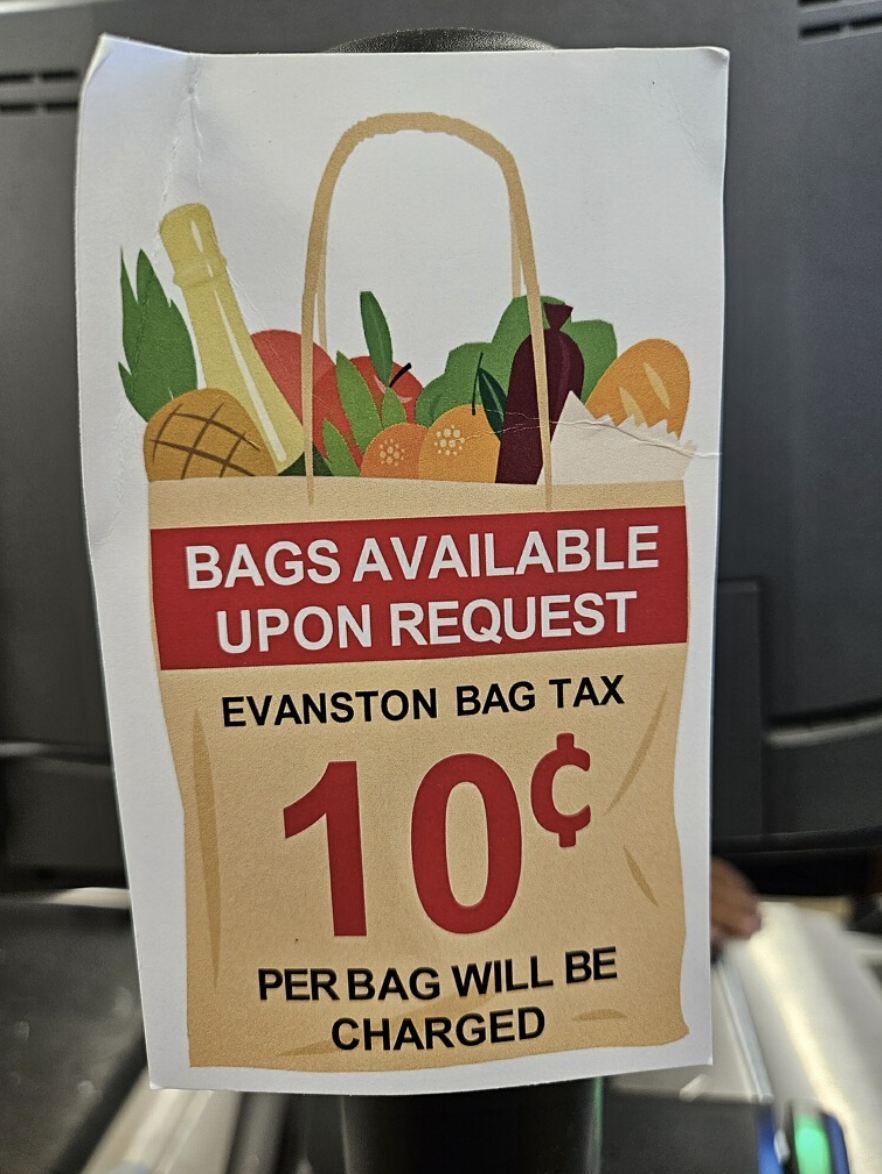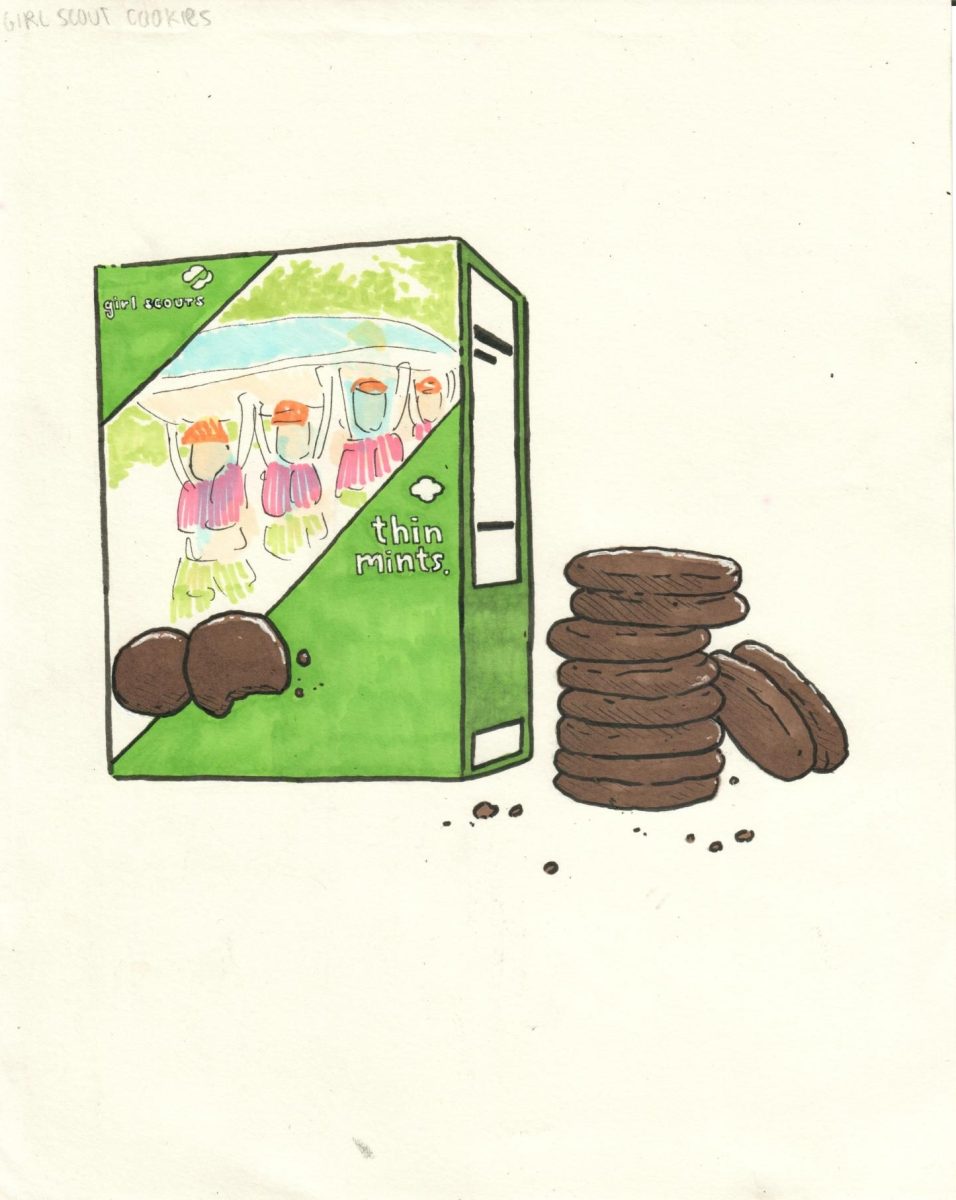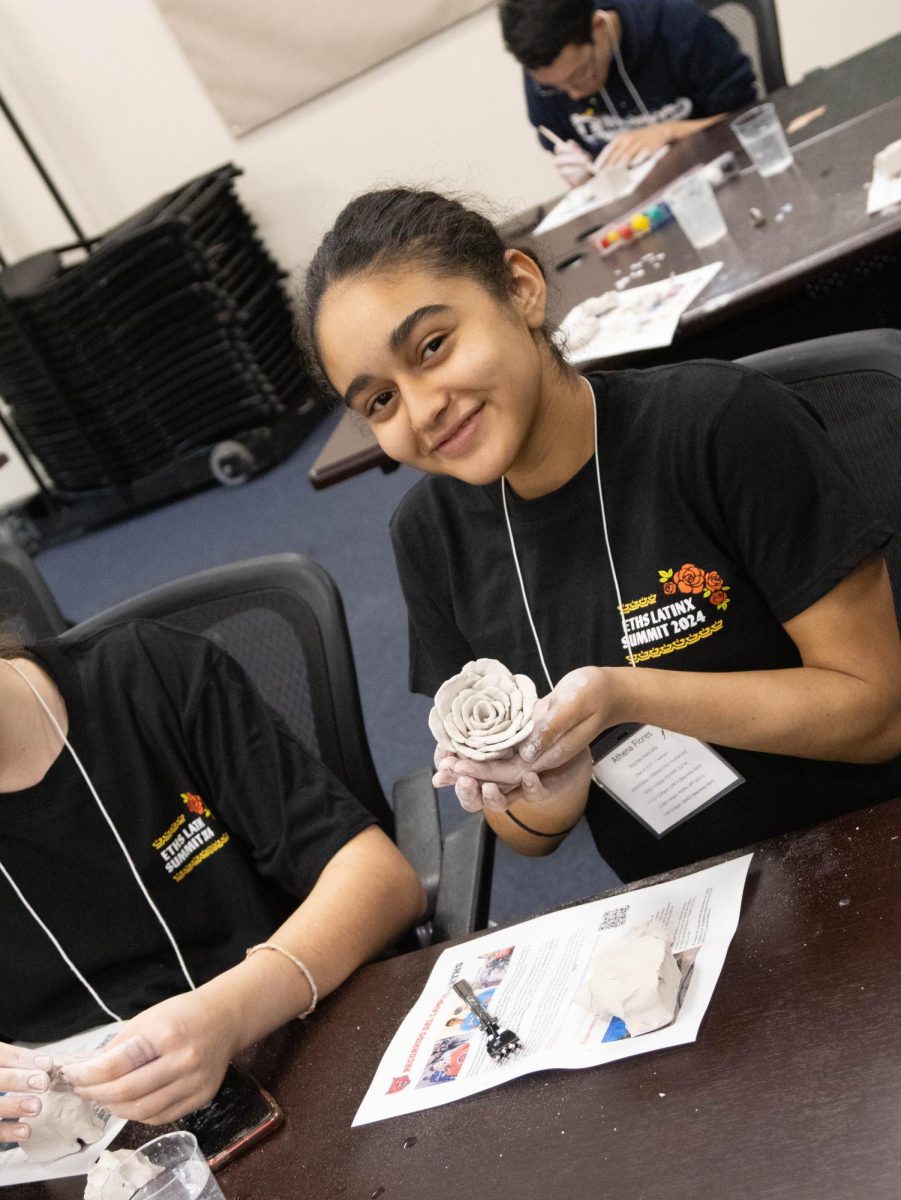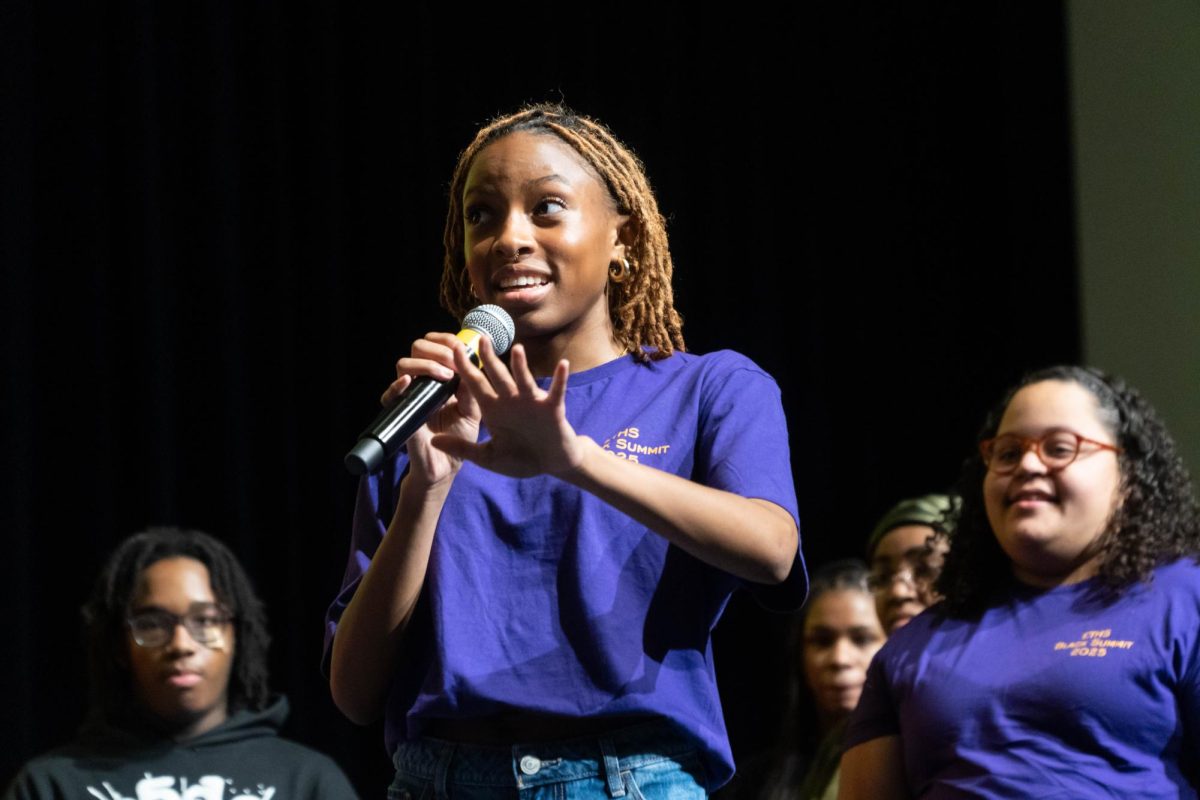On May 22, the Evanston City Council, in an effort to become more sustainable, voted to pass Ordinance 1-0-23, better known as the ‘Retail Single Use Bag Tax’. The ordinance banned single-use plastic bags and applied a 10 cent tax for all remaining bag types (i.e., paper) at large businesses greater than 10,000 square feet. The ban was scheduled to take effect on Tuesday, Aug. 1. The decision to ban plastic bags, and the speed with which stores were expected to comply, met much pushback from Evanston residents. As a result, during the Aug. 28 City Council meeting, council members voted to delay the implementation of the ban until Jan. 1, 2024.
When the city originally put forward the ban at the council meeting on Jan. 9, they proposed a 16-month compliance period, with the ordinance due to enter effect on April 1, 2024. However, when the ordinance was actually voted upon, on May 22, the 16-month compliance period was truncated to a two-month period, with the ban scheduled to commence on Aug. 1. This change caused several small businesses, (for example, D&D Finer Foods), much trouble, as they had purchased thousands of plastic bags well before the May ordinance approval. Without the ability to transfer custom-printed bags to alternate locations or use up all the bags prior to Aug. 1, D&D reported that they had $12 to $13 thousand worth of bags remaining by the time the ban went into effect in early August.
Thus, one of the topics discussed at Evanston’s Aug. 28 City Council meeting was whether or not the ordinance should be delayed to allow small businesses to use up the remainder of their bags, with the ordinance postponement being discussed for nearly 40 minutes while a variety of perspectives were articulated.
Krissie Harris, Second Ward councilmember, voiced her displeasure with the ordinance postponement.
“I am going to struggle with [the delay of the ordinance]. I don’t believe [the Aug. 1 commencement date] is unreasonable; we set expectations, I understand it was a tight turnaround,” said Harris. “[However], the law that we created is the law that we created. I am going to struggle telling a business to not follow what we’ve told them to do. I am never going to direct somebody to break the law.”
She then added that she empathizes with small businesses, but that she would be voting against the motion proposing the delay.
Other council members, like First Ward council member Clare Kelly and Sixth Ward council member Thomas Suffredin, emphasized their desire for the delay of the implementation.
“When I look at all of the other plastic bag ordinances in all cities, I have yet to find one that comes anywhere near close to a two month compliance,” said Kelly. “I think we need to extend it; I think even Jan. 1 is still only six months but [is] definitely far better”
Suffredin, in agreement with Kelly, emphasized the goal of encouraging business in Evanston.
“They made a business decision and we changed the game on them. I’d encourage [the city] to consider allowing them to go through their stock of bags. If the decision is to not be reasonable about this, this is just another example why we make it so difficult to do business in Evanston,” said Suffredin.
Eventually, the delay of the bag ban was passed, with only Harris voting against it. Businesses under 10,000 square feet will transition from plastic to paper bags when their existing supply of plastic bags is depleted, or on Jan. 1, 2024, whichever comes first.
Evanston businesses were generally supportive of the ordinance and its delay.
An employee at Lucky Platter in Southeast Evanston said that he “is glad that the city is being flexible and allowing businesses to go through their stock of bags.”
An employee at Main Street Pantry, adjacent to Lucky Platter, said that the Aug. 1 commencement date was an inconvenience to him, as he had bought plastic bags prior to the ban entering effect. Other establishments, like Bentley’s Pet Stuff, offered paper bags prior to the ban, so it had little effect on their day-to-day operations.
“I feel a little bit better about giving [paper bags] out because there is less plastic in the world,” said senior Carlo Goldberg who works at Play It Again Sports. His store recently switched from plastic to paper bags. “But [the paper bags are] definitely not as strong. They rip, and you need two paper bags for every one plastic bag.”
Other ETHS students voiced their opinions regarding both the ban and the tax.
“I support it personally; I feel like it is a good decision to mitigate plastic waste,” said freshman Arden Hampsen.
Miles Higgs, a sophomore, expressed his agreement.
“I think it encourages people to bring their own bags and it takes plastic out of the streets,” said Higgs.
Others were less open to the new policy. While they supported the removal of plastic bags, they disagreed with the tax on alternate options.
“I don’t think it’s right for us to have to pay for paper bags,” said sophomore Satthapi Mills.






